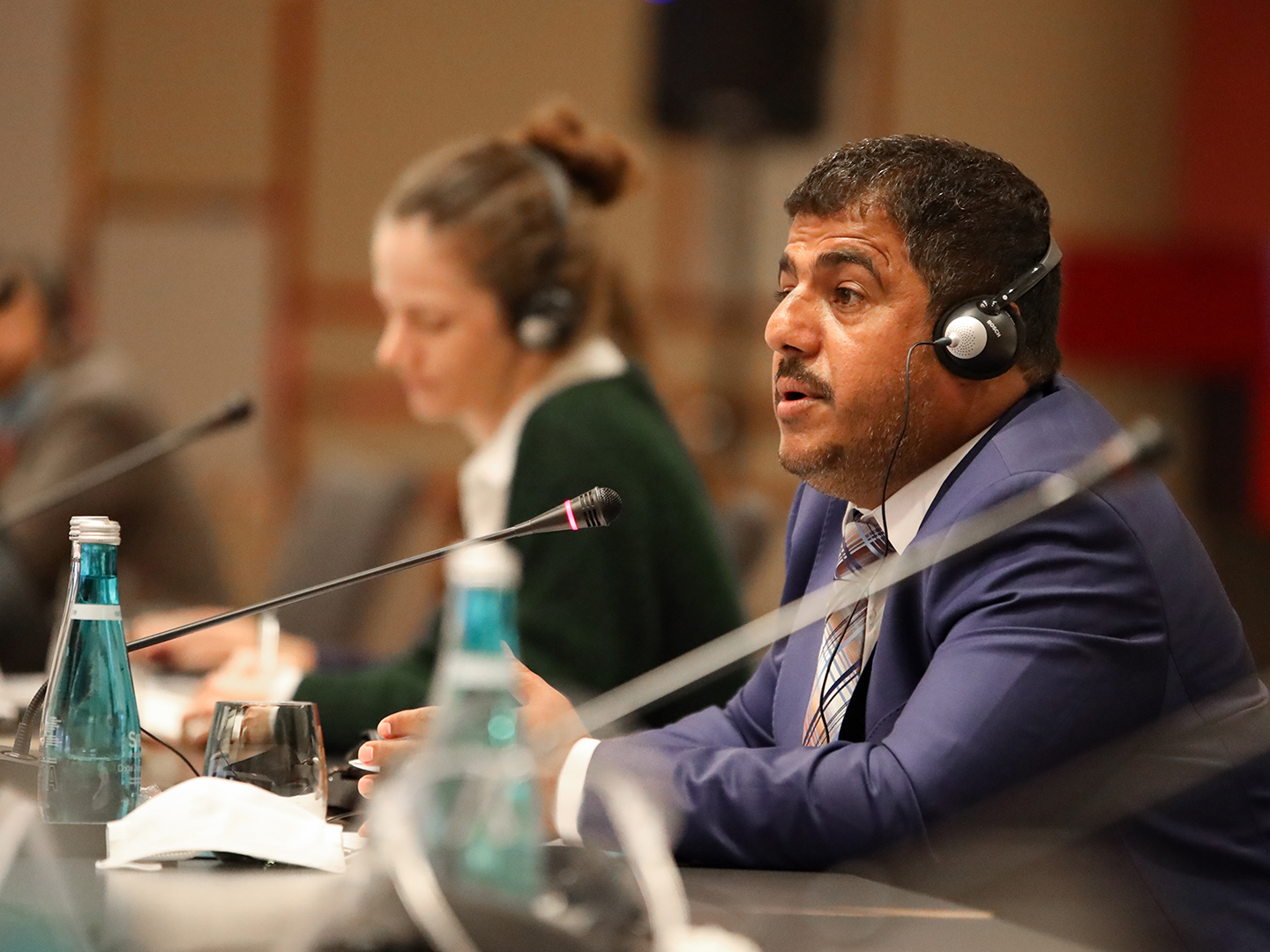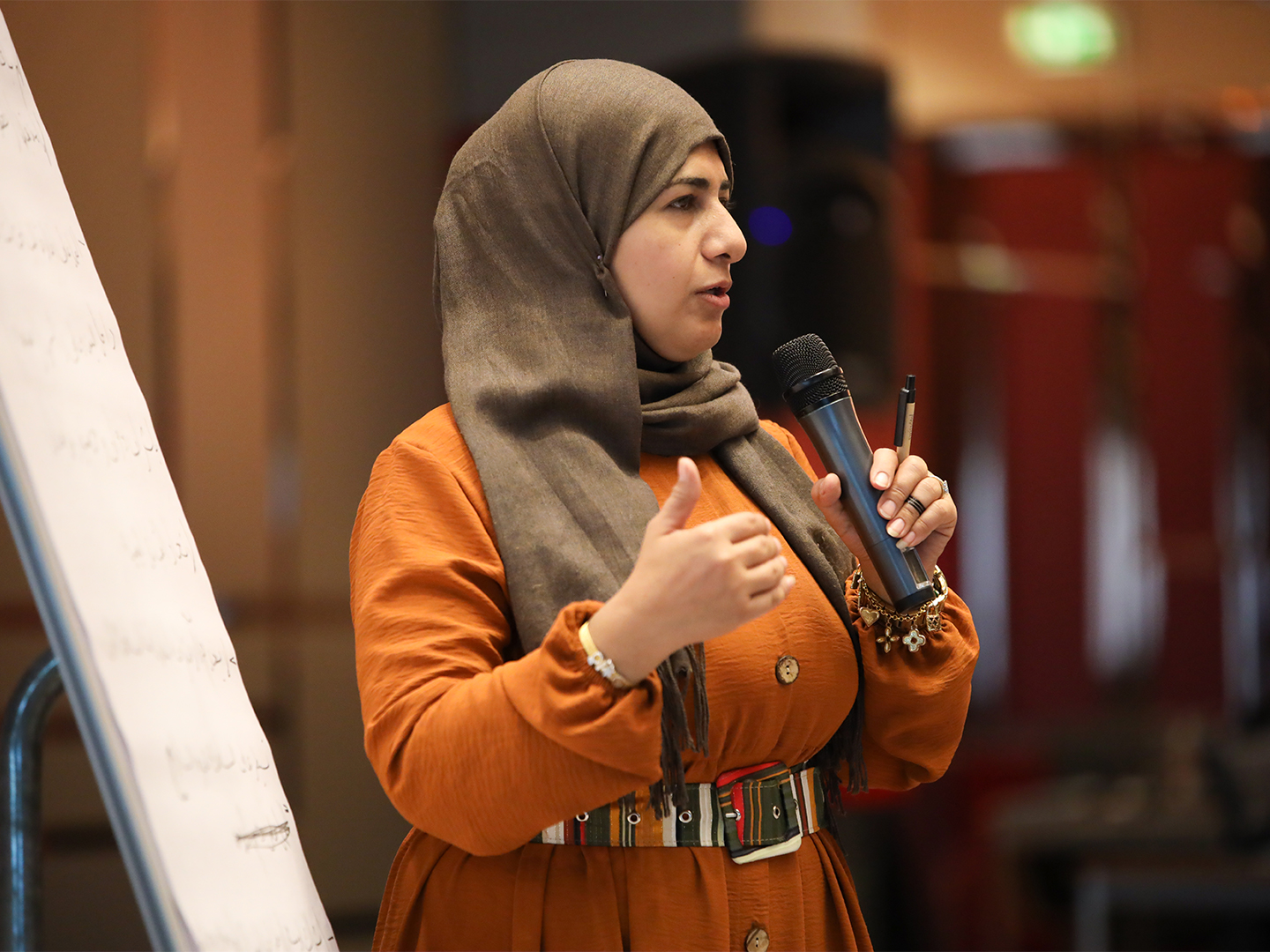Prisoner exchange mediator Sheikh Naji Murait: “When you’re honest and credible, you succeed.”
Sheikh Naji Murait has been one of the most successful mediators of prisoner releases during the war in Yemen. His work, together with other Yemenis, is a compelling example of the difference tribal leaders can make in the conflict.

Sheikh Naji Murait’s efforts have lead to the release of hundreds of prisoners. Photo: Olli Puumalainen/CMI
Tribes are the cornerstone of Yemeni society, upholding tribal customs and law many Yemenis depend on, especially in the current instability. Within the tribes, authority has traditionally been held by tribal leaders, sheikhs, a title that passed down in families, often going back centuries. Once the title is passed on to the next generation, it doesn’t go to a predetermined heir, but to the individual judged the most capable of the family’s next cohort, the first among equals.
Being a skilled mediator and a problem solver is key to what makes a good sheikh. Living proof of that is Sheikh Naji Murait, who in 2016 started to mediate prisoner exchange and release amidst the conflict. By his own reckoning he has been involved in mediation efforts leading to the release of several hundred of prisoners.
“There were lots of tribal leaders and sheikhs imprisoned by both parties, the internationally recognised government and the Ansar Allah [Houthis],” Sheikh Naji explains. “When the Sheiks were released, they joined in our effort. So, this idea of negotiating prisoner releases has been generalised. We work together.”
Releasing and exchanging prisoners is undoubtedly a great relief to those captured and their communities. But it also supports peacebuilding between the parties. It is equally important in securing the freedom of people unrelated to the fighting, such as journalists and non-combatant community leaders.
Sheikh Naji and his colleagues work on humanitarian issues on a voluntary basis, untied to the warring parties. This independence has an added advantage in negotiations.
“The Houthis accepted me because I was an impartial mediator, unbiased. As a tribal representative the person will be known by his deeds and his actions, not by the support of his tribe,” Sheikh Naji says. “In humanitarian activity your work is based on your honesty and your frank response. When you are honest and credible, you will succeed in your efforts.”

Layla Al-Thaour is another prominent Yemeni engaged in prisoner release and exchange mediation. Photo: Olli Puumalainen/CMI
The official peace process has a lot to gain from tribes’ positive involvement
The official peace process in Yemen is led by the United Nations, its focus being on the main belligerents. Stopping the fighting is crucial, but this is only a part of the effort needed to foster lasting peace. That rests on the involvement of the broader society – political parties, tribal leaders, and women – creating Yemeni-led solutions to the crisis.
Tribal leaders are on the pulse of the society, having an unrivalled understanding of their communities. Moreover, they are key actors in their spheres of influence, not only locally, but also in national politics, military matters and the economy. Yemeni tribes and tribal leaders have a long history in settling disputes and resolving conflicts. The official peace process has a lot to gain from their positive involvement.
“Tribes and people in Yemen want to see security and stability restored. We ask the UN special envoy to seek the help of the Sheikhs to develop a plan to stop the war in Yemen,” Sheikh Naji concludes.
Yemen project is carried out in partnership with Sana’a Center for Strategic Studies, an independent Yemeni think-tank focusing on Yemen and the surrounding region. The project aims to increase inclusion in the Yemeni peace process by amplifying side-lined voices of women, tribes and political parties and movements.
Olli Puumalainen/CMI

CMI’s work in Yemen is funded by the European Union.